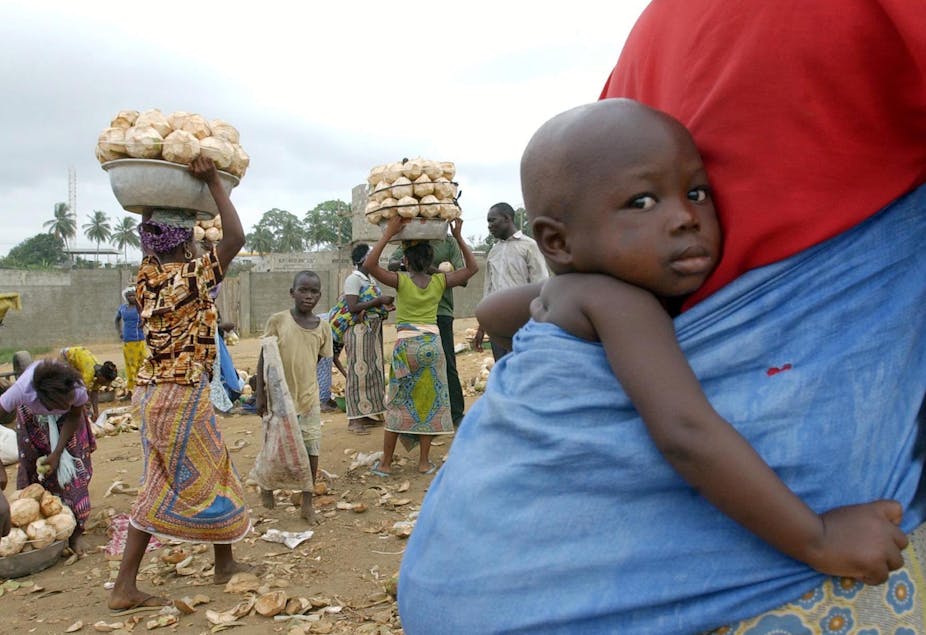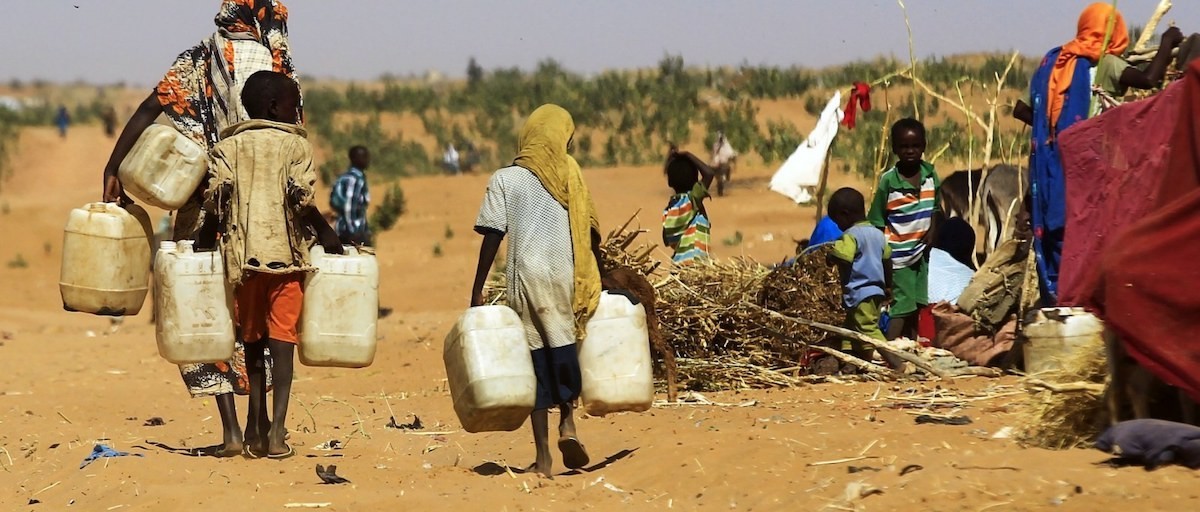Africa’s weak states are being hit the hardest by climate change

The article talks about two ways that climate change has hurt Africa: (1) it has hurt countries that are already having problems like poverty and war; and (2) it has hurt countries that are already having problems like these. Even though these countries make the least greenhouse gases, they are the ones that are most affected by climate change. They are having the worst floods, droughts, and extreme heat. It is true that poor countries are more likely to be hit by natural disasters, which means that more people are affected and the damage is worse than in more developed countries. For its part, the IMF has found that these countries are more at risk because of the long-term economic problems that climate change has caused. Some weak states have seen their GDP drop much more sharply after extreme weather events. The average value of these states’ GDP has dropped by a large amount. These kinds of countries might have issues like wars, unstable agriculture because it depends on rain, and not enough money to handle them.
Countries that are already fighting with each other find it even harder to deal with climate change. So, in Somalia, the extremist groups that rule the areas most affected by drought and hunger also make it harder for people to get help. However, climate change not only makes war and hunger more likely, it is also expected that more people will go hungry and that the number of deaths from war and hunger will rise. Most of the farming in fragile states is done without water, which makes them more likely to be affected by bad weather. They are having even more trouble because of this and the fact that the infrastructure isn’t being maintained and has been damaged by wars. Lack of money makes things worse for these countries and makes it harder for them to adapt to climate change, which is another reason why the international community needs to step in. The article suggests both short-term and long-term solutions to these problems, such as better money management, stronger social safety nets, and spending money on infrastructure that can withstand climate change. The IMF is also giving more help by giving policy advice, giving money, and building up countries’ abilities. The situation in Africa needs a global response because it affects people all over the world. Climate change in Africa has an impact on global trade, migration, and biodiversity. Some solutions are for countries to work together to share money and technology and for people in the same area to take action to make their own practices and infrastructure more environmentally friendly. To lessen the effects of climate change on Africa’s most vulnerable countries, it is important to strengthen global partnerships and put in place effective climate policies. When talking about the problems and solutions that come with climate change in Africa, especially in its fragile states, it’s important to think about the bigger picture and take the steps that are needed to solve the problem.

More General Effects of Climate Change in Africa:
Changes in weather patterns are putting a lot of different kinds of plants and animals in danger in Africa. Losing species and habitats can hurt biodiversity and ecosystem services around the world in a lot of different ways.
Unstable economies: Climate change has effects on economies that go beyond the countries that are directly affected. Supply chains that depend on minerals, agriculture, and other resources in Africa could be messed up, which would have an impact on markets and economies around the world.
Migration: As climate change makes living conditions worse, a lot of people may leave their homes, both in Africa and to other continents. This can make things more difficult in the world’s politics and put a strain on social services in host countries.
Health crises: As temperatures and rainfall patterns change, so do the homes of insects that carry diseases, like mosquitoes. This makes it easier for diseases to spread. Spreads of diseases like malaria and dengue fever can happen because of this.
Needed Solutions and Steps:
Developed countries and international financial institutions should help African countries adapt to climate change by giving them more money and waiving their debts. This includes money for building projects, using renewable energy, and making communities more resistant to climate change.
Transfer of Technology: It is very important for developed countries to share their technology and knowledge with African countries. Technology for renewable energy, water management, and farming methods that can handle climate change are all part of this.
Community-based Adaptation: Giving local communities the tools and knowledge they need to deal with climate change can lead to more long-lasting and culturally appropriate solutions. This includes promoting indigenous ways of knowing that have been shaped over time to fit the conditions of the area.
Better farming methods: Changing to crops that don’t die in drought, making irrigation systems better, and using environmentally friendly farming methods can make people much less vulnerable to climate shocks.
Policy and Government: To deal with climate change more effectively, African governments need to improve their policies and the way they run their countries with help from other countries. Adapting to climate change should be a part of national development plans, and government agencies should work together better.
Education and Awareness: It is very important to make people more aware of the effects of climate change and how important it is to use sustainable practices. Education campaigns can get people to save water, plant trees, and leave smaller carbon footprints.
International Cooperation: Because climate change affects everyone, the world needs to work together to find a solution. This means following through on international agreements like the Paris Agreement, working together on climate solutions research and development, and supporting global climate finance mechanisms.
Getting rid of climate change in Africa’s fragile states and beyond is a complicated problem that needs local action, international help, and cooperation around the world. The international community can help some of the world’s most vulnerable people deal with the effects of climate change by focusing on sustainable development, building resilience, and fair support systems.